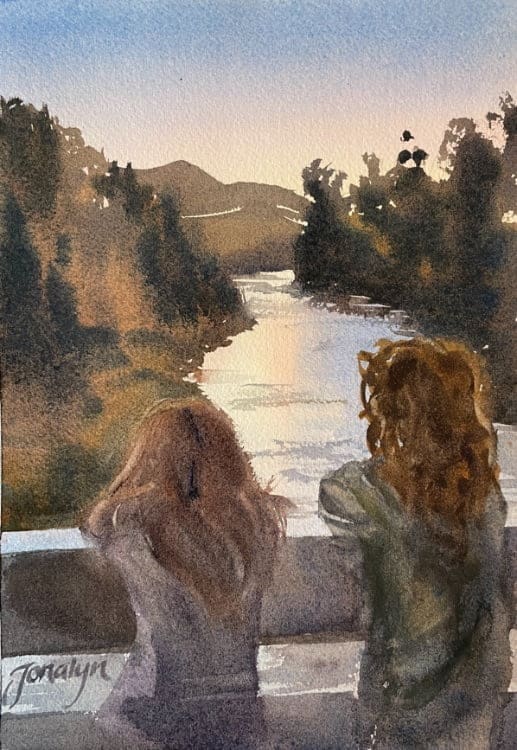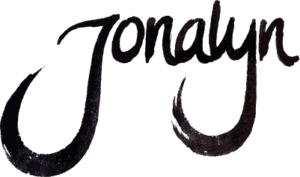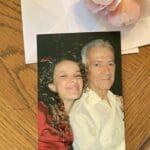“Codependency* has no respect for age, color, social standing, or sex.”
Anne Wilson Schaef
We had just finished a terrific sushi dinner in New York City. We were enjoying a double date with D and his wife who lived in New Jersey. D had helped us find a babysitter, so we could enjoy driving his little hot rod and a night in the city.
The saké was good enough that D asked his wife to take the wheel home. He had keenly spotted a cop nearby. The police officer strolled toward us as we walked to our car.
We were high on the fun of a city meal, resplendent in smart casual clothes, good food when the officer inquired about our evening. We could all tell he assumed we were urban, young professionals. Important people. Living it up in the Big Apple.
I suppose we could have easily given that impression. But before stepping into the sleek silver car D’s wife laughed and said,
“Oh no, I’m just a New Jersey housewife.”
Her casual humility stuck with me, even eight years later. She was completely grounded, then and now, in her normal status.**
She still doesn’t put on airs. She owns her normal plot of earth, small though it may seem to others.
Under pressure, she held to the normality of her life.
~~~
Two years ago, I wrote in my journal about “the cult of specialness.” I included a list of ways I had held to being better, unique, chosen, a stand-out.
I put a connection together then that still ripples out into healing.
Specialness is linked to the widest mental infection in our world today: codependency*. And since codependency is both misdiagnosed and misunderstood, since codependency is a disease that our current culture encourages, coddles, even overtly praises, it’s imperative to speak out about the problem.
Over the years, I have held onto characteristics that helped me feel special simply because I couldn’t stand the possibility that I could be overlooked. The reasons behind this are varied and private.
Still, specialness wasn’t just my special problem. Many people hold onto specialness as a way to cope, to convince themselves they will never be abandoned, to refuse to face grief, to keep going in a dark world, to stay relevant, central, known. But, specialness is a false god, a Turkish Delight, an addiction that creates more dependency than healing.
Once you’re special because of x, you must keep up x, or risk abandonment.
~~~
Nothing so satisfies a codependent as to hear “I’ve never been able to talk to anyone like I can talk to you.” I nearly married the wrong guy because he said that to me. If you’re convinced you’re actually better or more special than most the people you meet, you are easy prey.
Narcissists are hungry to find “special” people. Narcs know they are superstars at putting people on temporary pedestals.
- “You smell like Catalina Island.”
- “I want to make you the most important person in my life.”
- “Vote for me and change the world.”
Narcs are drawn to codependents, people who need to be special more than they want normal human love. Narcs know codependents will put up with a shell of a person, just for that pedestal. That’s why I believe there’s more evidence that President Obama is a narcissist than President Trump. Obama made people feel incredibly special for choosing him. Trump just leaves you wondering if you’ll still have your job when you’re through.
Narcs don’t leave you wondering. Narcs make you feel like a million bucks, then they disappear. The charm-disappearing act is their speciality.
And if we want to be special, narcs will flock to us like fruit flies to ripe bananas. It’s impossible to keep them away. There is only one cure. And like most real cures it’s painful and it’s long. But it works.
~~~
Recognize and accept your normal status. Learn to walk as a normal woman, a normal man. A member of the human race. Not raised above or stooping below. Just like D’s wife, hold the normal plot you’re given.
I’m just a homeschooling mom who paints and writes. I’m gifted in painting, but I cannot fix a broken dock. I have great hair but so do millions of others. I’m strong at intuition and reading people, but quick to be prideful and judgmental. I’m organized, but not humble. I have big dreams, but we’re renting homes right now, trying to find our long term place. Nice to meet you.
And friends may say “No, you’re more.”
And I say, “Sure, I’m more to you, to God, because you love me.”
And suddenly we see how being loved (without being central to anything) is actually better than being special. Being seen as myself without standing on the pedestal is the true salve that heals us.
And so, over the years, I shed the special costumes, and the targets slip off with them. The fruit flies go somewhere else. I no longer need someone to place me higher than I ought to be. And so I no longer need the narcs, the charmers, the addicts. And they cannot find me so easily.
This means I have a chance at real friendship, where we stand at the same level, looking at the same thing, delighted at the calm goodness in our lives. Which really is tremendous and special.
Friendship is special, because God gave it to me, not because I’m the only one who has it.
~~~
Want more ways to heal from codependency? That’s what this September will be about. Forward this to a friend, share in the comments. Let’s not stay in silence or loneliness about this epidemic.
Part 1: How Special Do You Need to Be?
Part 3: How Beauty Made Me Sober

*Co-dependency is a disease within the addictive process. Co-dependents need to fuse with someone else’s needs to validate their own. In clinical terms they’re “externally referent.” Codependents, like all addicts, are characterized by many signs: dishonesty (denial, projection, delusion), not dealing with feelings, control, confusion, perfectionism, fear, rigidity, judgmentalism, depression, inferiority/grandiosity, self-centeredness, external referencing, etc. As a term, “co-dependent” was coined to describe the enabling partner in an alcoholic relationship. The alcoholic is dependent on his substance, but the co-dependent is also addicted, not to alcohol but to the place they play in the addiction. Codependency is actually present before alcoholism and when untreated, alcoholism is the result. For a codependent, one fudged truth about who they really are is like a first drink for an alcoholic. Even while alcoholics find treatment, their codependent partners are often overlooked and even shamed for finding sobriety. Codependency has diseased most our relationships, in the family, the church, in education and politics. And our culture is invested in keeping people away from healing. For a short, smart book on the topic see Co-Dependence: Misunderstood-Mistreated by Anne Wilson Schaef.
** I know, I know, compared to the rest of the world she’s privileged. But that is not the point of this story. The point is, compared to the way she was perceived, she chose to self-identify as more humble.












17 Responses
When I think about what I want for my kids, it is freedom in their relationships. Freedom to come or go, and freedom to choose the right thing, not just what would make their partner/kid/mom feel needed/wanted/ok.
I think it’s a sign of maturity to be ok with being normal, typical, nothing special.
When Kyle died, a few people told me I must be very special to be “chosen” for such a tragedy. That’s a damnable theology. And it was the least comforting thing. Suffering is common to all. It’s not “why me?” but “why not me?”
Thank you for this substantial post! It captures so much of what’s important to me.
Exactly! Maturity can be measured by our okayness being normal, typical, steady within the humdrum.
I hear you. To take Kyle’s horrific death and try to turn it into a balm of being chosen. Damnable is quite appropriate here, for it is actually a curse. I’m thankful you can see it for what it is. Reminds me of Tina Fey’s memoir Bossypants when she tells how people would react to her scar on her jawline. She was slashed by a psychopath as a child, and people would fawn over her scar and say “It’s so beautiful.” She called it what it was, “Ugly.” And I think she’s correct. Evil, sudden death of the young, destruction of humans, predatory behavior is ugly. It can be redeemed because God knows what to do with scars. But they’re still scars. Let’s not have any nonsense about Tina being chosen for mutiliation.
It’s my pleasure to be able to write here for an audience like you, Hope. Thank you for instilling a new way of living in your child-rearing. I want my kids free to choose the good, the full and abundant life, too. Let’s clink glasses across the miles to that vision! 🍻
I know it was an aside, but my first thought when you mentioned Obama/Trump was the “go home, you’re very special” video after the Capitol invasion. I’d be surprised if we could elect a president right now (ever? I don’t know enough election history) who doesn’t appeal to the ego.
https://www.wsj.com/articles/trump-tells-rioters-i-know-how-you-feel-draws-bipartisan-condemnation-11609977209
Hey Hope,
I’m relieved you had the courage to open up that aside here, because I know others will have the same thought and question. Thank you!
I don’t think appealing to someone’s ego is a sign of a narc. Even Jesus did that when he said his followers will be rewarded and praised “Well done, good and faithful servant.”
I don’t think arrogance is identical with a narc. You can brag and fixate on your accomplishments, it’s easy to make anyone look like an arrogant prick with edited sound bytes. I mean, my sweet oldest boy can sound like an arrogant jerk if you edit him properly. Because, let’s face it, our kids do talk a lot about themselves. 😆 So do my girlfriends when they’re with me. We all talk about our accomplishments. We all feel tempted to brag and fixate on our best moments when we know we are listened to well. It’s immature, sure, but it’s not narcissistic, at least not how I’m using the term.
I don’t think helping people see they’re special is a sign of a narc, either. I know Jesus, Mother Teresa, and my grandmother all have that quality.
Narcs, from my experience with them, are more than arrogant, egotistical jerks who help you feel special. Narcs are actually charming, engaging, very good listeners… at first. But as soon as you ask them to show up to be close to you, they disappear. They cannot tolerate intimacy. Perhaps a simple clear definition would help. I’ll bring in an expert so we have a common definition. This from my cousin who has 40+ years in his psychotherapy practice in NYC:
“Narcissistic personality disorder is a person bogged down in a self-centered distraction of not measuring up (beauty-wise, and otherwise). They are constantly seeking affirmation to offset their sense of self but, obsessed with their own sense of self, they’re incapable of empathizing with or relating to others. So they’re constantly unsatisfied and constantly ill-equipped to share relationship with others.”
So while I agree President Trump is arrogant and egotistical, I think the way President Trump squarely faced off, for four years, with all media reps from CNN or NBC or almost all other center-to-left media outlets made it clear: he didn’t care if you liked him. He believed he was right and was brash and often stubborn in how he went about stating his rightness. He returned fire with fire. And a lot of people got burned, mostly, President Trump. I also think he was caring, warm and strategic toward those he was trying to help. I know if you didn’t read the White House news updates while he was president (something I subscribed to), you couldn’t hear his heart for justice, minorities, women and veterans. The media (including the WSJ which socially is farther left than anyone wants to admit) didn’t let you hear it. That’s their fault for misrepresenting him. And it’s our fault for listening to only the one side.
But President Obama, in the way he led from behind, in this fantastic silver tongue, in his enviable ability to attract people to see him as their messiah, in the love affair with all media outlets (he was on the cover of Rolling Stone, Time, Newsweek, IG, FB, Twitter were all in his pocket, of he was in theirs, not sure about that now 🧐), I think it’s fair to say Obama was more charming than Trump. I mean Obama could charm his way anywhere.
Charm is always a pause for me. You can be charming without being a narc, sure. But how do you handle intimacy? Why do you make people feel special around you? What are your rallying cries? President Obama made his messaging about him as as symbol of hope. President Trumps message was making American great for Americans. At least that’s how I read them. One is a call to a personality, the other is a call to an improvement of a nation.
Trump for all his popularity among the right is still not as applauded as a messiah as President Obama was by the left. I don’t know any conservative who supported Trump who thinks he was flawless. Most on the left, however, still see Obama as impeccable.
I once watched Trump in a press conference handle an accusatory journalist’s claim about a judge. She was from some major paper, I think it was NYT. Once she pushed her point, he humbly said he would look into it. Then, a moment later it was revealed that she had hid the important point that it was President Obama who had appointed the judge who made the poor decision. Trump was on her case so fast. He accused her of concealing the truth and you could see by the journalist’s blush exactly what was going on. Trump felt hoodwinked and he called her on it. She couldn’t stand it. But, I knew how the article would be written.
I think most of American only got to see the Trump who held people accountable. And since that takes a tremendous sense of self (think back on the last time you had the courage to publicly call anyone on their sin), to call a spade a spade, against public pressure to shut up, I think it’s safe to say Trump has a very secure sense of self. if so, then it’s impossible that he is also a narc.
Finally, it’s truly impossible for us to know if Obama or Trump are narcs simply because we do not know them personally. Everything we see is mediated. But if we had to simply go by what we have seen, if we had to accuse just one of having the narcissistic wound, my money would be on Obama.
Pushback welcome.
The big pushback I have here is- on what grounds do base your perception of Trump being able to handle intimacy and Obama not being able to handle it. Trumps marital history should be telling to us that he is not quite the person you seem to be making him out to be.
Is intimacy truly the highest telling point? My money would be one Obama being the one who can maintain intimacy, from what has been observable.
Thank you for opening this topic up this month! I know I carry the qualities of codependency (stemming from my adaptive responses to early childhood trauma), and I’ve wondered how to shed this entanglement more. The thought of not being “special” but rather “normal” really struck a cord with me and the “everyone is special” upbringing I had in the 90s / early 2000s. Much to chew on and look forward to reading about this month!
Jennifer K,
You are welcome! I think many Americans carry these qualities, so good for you for being able to identify and admit it. I think Schaef’s definition of an addition helps quite a lot, it certainly motivates me to continue to find sobriety.
An addiction is any substance or process that puts us out of touch with ourselves (our beliefs, our feelings, our awareness, our desires). In short it is any substance or process we feel we have to lie about. Recovery comes when we find a more authentic way to belong to ourselves, our community and our God.
I also wanted to mention that there is one way of owning our specialness that has nothing to do with being better than others, it’s the specialness of being seen and valued for who we really are. It’s what a true friend brings to us, but this specialness is less common simply because friendshipping has waned in recent years. I hope to grow a body of posts that re-habilitates the art of friendship again.
Thanks for your encouragement to keep writing!
Jonalyn, this opens up an area of awareness for me that I’ll be chewing on and using to reflect on past and present seasons of my life. Thank you for the powerful food for thought.
Thank you, Amy, for your humble and open-hearted response. It’s my pleasure to write for comments such as yours.
A great read, thanks Jonalyn. “Narcs are drawn to codependents, people who need to be special more than they want normal human love.” This idea of normal human love, laced throughout, was my fav. Settling for specialness instead of real love…to me that goes right back to the Garden. I think the need for specialness captures the essence of the rebellion that robbed us of living in our given, boundaried human significance! One of the biggest traps is mistaking addictive specialness for true intimacy and belonging—both in our human loves and our spiritual ones. The Turkish delight idea also really sticks!
You’re welcome, Chelsea! Thank you for sharing your insight here.
I particularly want people to notice how the sin of being “bigger than our britches” or being more special than others, is a better way to explain to the sin in the Garden. Much better than the typical “sin of pride” or “sin of rebellion” typically used to describe Eve and Adam’s sin. It’s very easy to assume we are not prideful, not as easy to assume we aren’t a little ahead of the morons around us. 😆
In fact, just today we took our boys to a local Planetarium where the “Little Star that Could” felt unimportant because he was just average. Reminded me of the self-esteem movement that tried so desperately to pump up young people. Trouble is, you don’t get humble, confident humans by pumping them with myths of their exceptionality. Instead you get entitlement, perfectionism, codependency and eggshell egos.
It’s very meaningful for me to hear how my ideas helped you think deeper.
💗 I hope you’ll comment again!
“Once you’re special because of x, you must keep up x, or risk abandonment.” This sentence stuck out to me, because it shows that there is this effort that must be made not freely received. Thank you for the work you do to heal yourself and for caring so much to heal others too!
I appreciate your comment, Kaylee. And I was about to respond when I realized, I’m not sure what you meant by “There is this effort that must be made not freely received.” Could you explain more about that?
As an enneagram 2, there’s just sort of an inherent shame, that’s I’m not worthy unless I can be something of worth to someone THEN I’ll receive back. The idea that you’re special because of x would imply I have to work to be worthy. That in and of itself puts oneself chronically at risk of losing x and losing love. Whereas breaking the need to become something before being worthy of love means that one does not have to work to receive. In that, is freedom. Maybe another way to say it would be I can receive without first giving or becoming (and standing in that worth is freedom and having been healed) whereas not being healed and free assumes I have to be before receiving.
Hi Kaylee,
Thanks for this explanation, my friend.. As another Enneagram 2, I completely understand 🤗 For those reading along, who might have a 2 as a friend, here’s a tip: One of the best gifts you can give your friend who is a 2 is to tell them “There is nothing you need to do to keep me around.” If you can share that, you let your 2 friend know they are enough, they don’t need to keep up any routine, gifting, remembering, serving. What a relief! What a gift to receive!
And I agree with you, Kaylee, this is ultimate freedom, receiving without having to give. Reminds me of two Thanksgiving dinners separated by 15 years, where I showed up with just myself, no food, no present, just me. It felt scary, actually. But it was healing both times. I’m sure you know what I mean.
I’m glad you share more in this comment! 💗
Been meaning to comment Jonalyn. This is great. It cuts right to the heart of codependency.
“Being seen as myself without standing on the pedestal is the true salve that heals us.”
I think we all know this deep down, but we get distracted by the intense momentary pleasure of being pedestalized. The little dopamine hits we get from it are so addictive, it’s no wonder that special is such a popular drug.
Humility is the cure for codependency. Seeing ourselves with clarity, warts and all, without all the tempting distortions to mask that shameful normality we’re so terrified to reveal.
Thank you. This has given me some new ideas to implement in my work.
Pedestalized. HA! That’s pretty good, Miles. Yes, special is a popular drug, it’s even encouraged, right?!
Means a lot to hear that this post gave you enough to implement in your work. For those following along, Miles works with mentally or physically challenged adults, helping them integrate and survive in this maze called modern society. Longtime readers, you may recall that I interviewed Miles back at the RubySlippers blog.